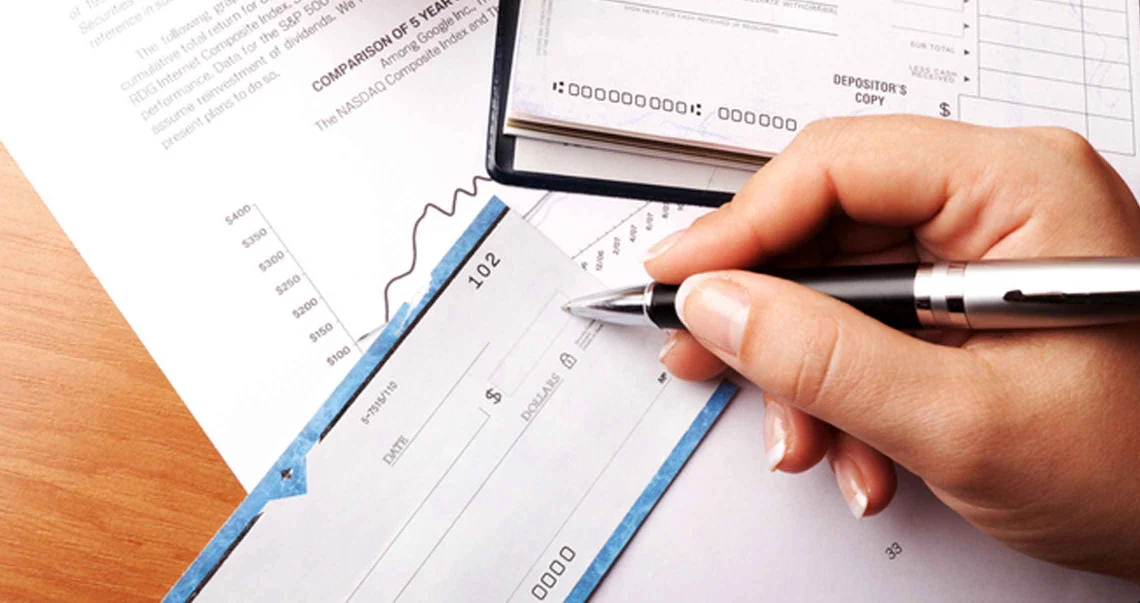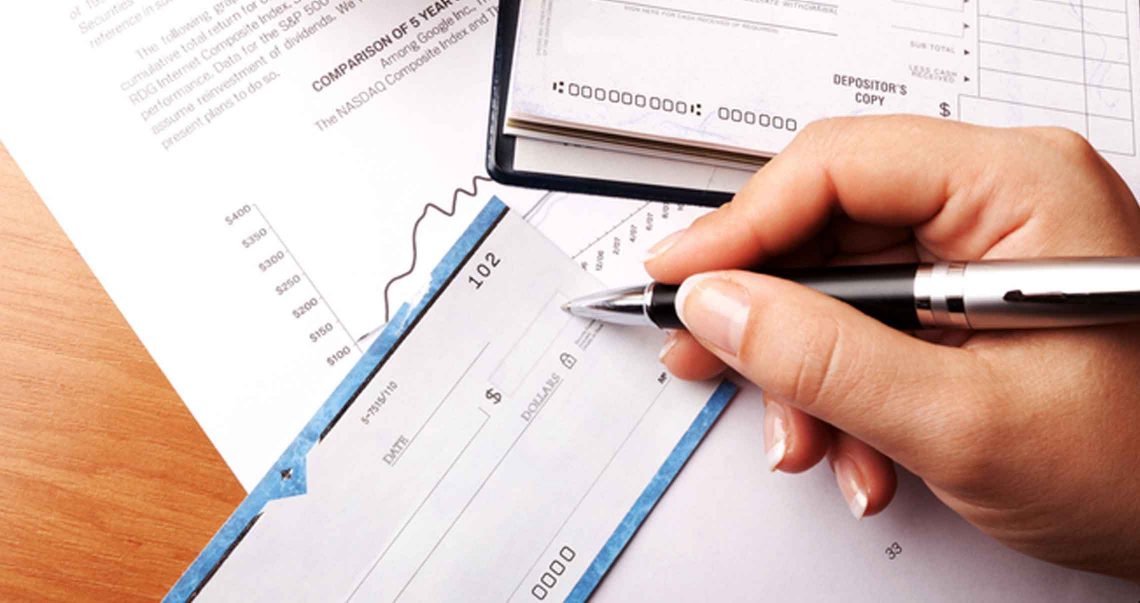What is a personal check?
Older generations are likely familiar with personal checks because they've used them for a long time. But for younger people who have come of age in the online era, they might ask the question, "What is a personal check?"

Given today's digital options for transferring money, seeing a paper check can feel a little like spotting a horse-drawn carriage. However, there are still many situations in which writing a check makes sense. Depending on the circumstances, personal checks can even offer advantages over digital methods.
What is a personal check?
A personal check is a piece of paper that shows the account number and routing number for your checking account. To write a check, you fill in the date, the recipient's name and the amount of money. You also sign your name.
The recipient can then either deposit the check in person at their bank branch or an ATM, or they can deposit it digitally using a mobile banking app. Next, your bank takes the money out of your account and transfers it to the recipient's bank—which puts the money into the recipient's account. This is known as check clearing. Once this process is complete, you've successfully transferred money from your account to theirs.
When should you use a personal check?
So, why do people still use checks when there are other ways to send money? A personal check is often preferable in these types of situations.
- You're making a large purchase. When using digital payment apps, you may face limits on how much you can transfer at once. You can write checks for large amounts, as long as you have enough funds available. Before taking out your checkbook, consider using a cashier's check or certified check. These types of checks come with additional protections that are especially helpful when you're transferring significant sums of money.
- You need to send a payment through the mail. You can seal a personal check in an envelope and send it on its way, which is handy when you need to pay a bill from a company that doesn't accept online payments.
- You're giving money to someone who isn't comfortable with digital banking or who can't go online. Not everyone has an email address or internet access, and some people don't know how to use digital banking apps or online services. This means digital payments aren't accessible to a portion of the population. Fortunately, paper checks offer a way around this problem and allow you to give money to others whether or not they accept digital transfers.
- You're paying someone who doesn't want to share online contact information. Digital methods of transferring money may involve exchanging bank account numbers, email addresses or payment app usernames, depending on which service you use. Some people are unwilling to give out this information, particularly to someone they don't know well. By using a personal check, you can respect the recipient's privacy and avoid potentially awkward requests for contact details.
- You're making a sensitive payment and want a paper trail. Signatures are required both to write and deposit checks, which adds a layer of security to the process. Plus, you can see a record of when checks you've written are deposited by logging in to your account online or speaking to a bank teller, which lets you verify that the recipient got the money.
- You're presenting a gift or honoring someone publicly. If you're giving money as an award or as part of a ceremony or celebration, it makes sense to use a paper check that everyone can see and acknowledge.
When you want to send someone money, you now have more choices than ever. Sometimes, though, the best option is still a tried-and-true personal check.





